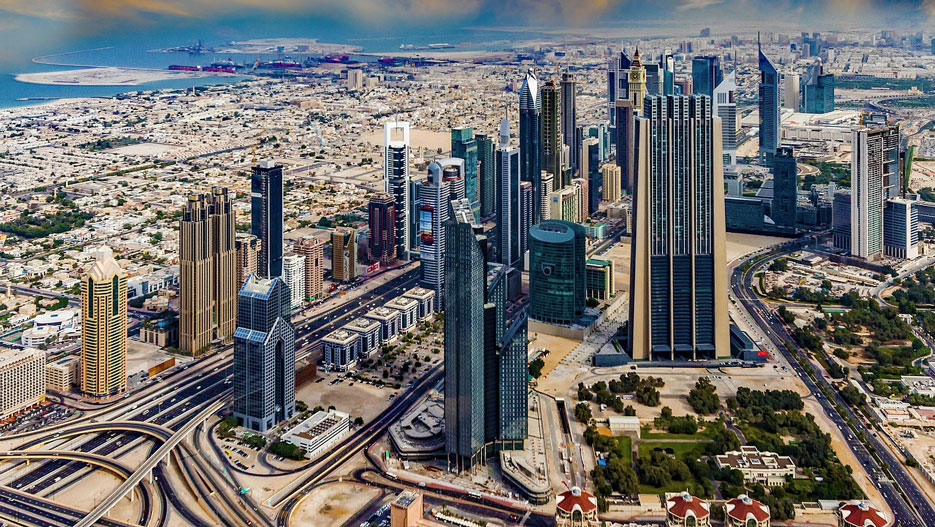Economic Outlook: Projects of the 50 to Help the UAE Reduce its Dependence on Hydrocarbons
One of the main challenges of the UAE economy is the reduction of its dependence on hydrocarbons which, despite efforts to diversify the economy, continue to represent a substantial share of public revenue. Projects of the 50, a series of developmental and economic projects, were designed to make the country the global capital of investment and economic creativity, an integrated incubator for entrepreneurship and emerging projects, and an advanced laboratory for new economic opportunities.

The UAE is a federation made up of seven emirates (Abu Dhabi, Ajman, Dubai, Fujairah, Ras Al Khaimah, Sharjah, and Umm Al Quwain). This federation is headed by the Supreme Council bringing together the seven emirs which elects the President and the Prime Minister for five years and designates the members of the Council of Ministers. However, each emirate has its own government and retains broad autonomy, particularly in budgetary and economic matters, which explains the divergences in strategy observed, for example, between Abu Dhabi and Dubai in the response to the COVID-19 crisis or in terms of diversification policy.
The UAE economy shrank by 6.1% in 2020. It was weakened primarily by the collapse in oil prices, while state revenues rely heavily on hydrocarbons. Representing 32% of GDP, the oil sector is the main engine of the economy. The Emirates hold 5.6% of proven oil reserves and 3% of gas reserves. At the end of 2019, crude oil production reached 3.1 million barrels per day but slowed to an average of 2.8 under the OPEC + (Organization of the Petroleum Exporting Countries) agreement in 2020, which called for a decrease in crude oil output. In total, the sector’s contribution to GDP fell by 6.3% in 2020. In the medium term, hydrocarbons will nonetheless benefit from ADNOC’s (Abu Dhabi National Oil Company) USD 122 billion investment program aimed at increasing and diversifying the production of oil and gas by 2030.
The pandemic has also affected other sectors such as tourism, real estate, distribution, and air and maritime transport, of which Dubai is the spearhead. The non-oil sector thus recorded a recession of 6.2% in 2020. However, the IMF (International Monetary Fund) forecasts a recovery to 2.2%. Given the limited support to the economy provided by the UAE government, the return to growth will depend mainly on the external environment, including the development of the pandemic and the price of hydrocarbons.
Beyond the immediate management of the consequences of COVID-19, one of the main challenges of the UAE economy is the reduction of its dependence on hydrocarbons which, despite efforts to diversify the economy, continue to represent a substantial share of public revenue.
The authorities are aware of this and working on it, as illustrated by the various announcements in favor of UAE’s attractiveness. These efforts have resulted in numerous measures called the “Projects of the 50”, a series of developmental and economic projects marking the country’s jubilee since its founding in 1971 and its vision for the next 50 years to make the United Arab Emirates the global capital of investment and economic creativity, an integrated incubator for entrepreneurship and emerging projects, and an advanced laboratory for new economic opportunities. The objective will be to position the UAE among the top ten global destinations in terms of investment by 2030, aiming to attract USD 150 billion. An extremely important aspect of the newly introduced measures relates to visa facilitation, visas being a core pillar of the economy as nearly 90% of the country’s population are expatriates.
FAIR USE POLICY
This material (including media content) may not be published, broadcasted, rewritten, or redistributed. However, linking directly to the page (including the source, i.e. Marcopolis.net) is permitted and encouraged.